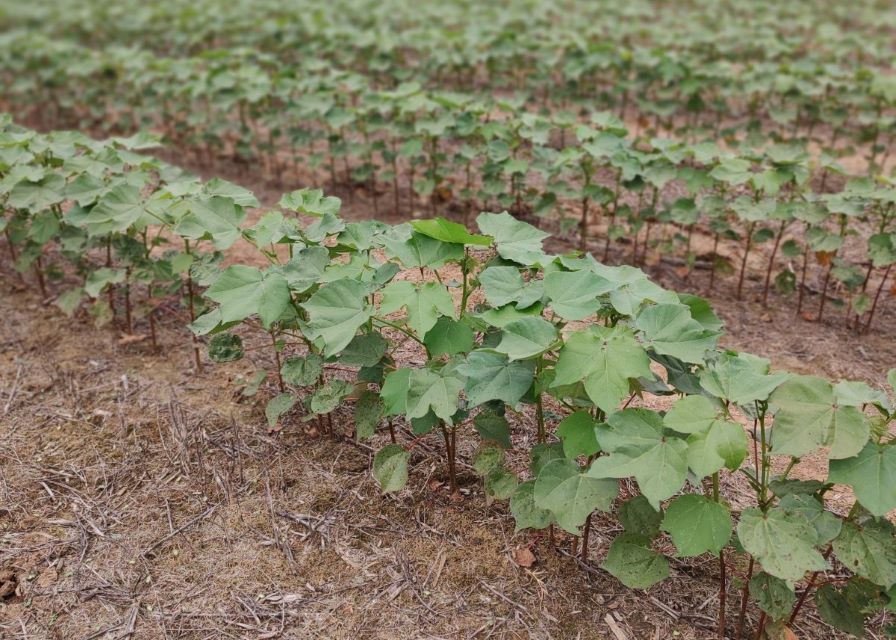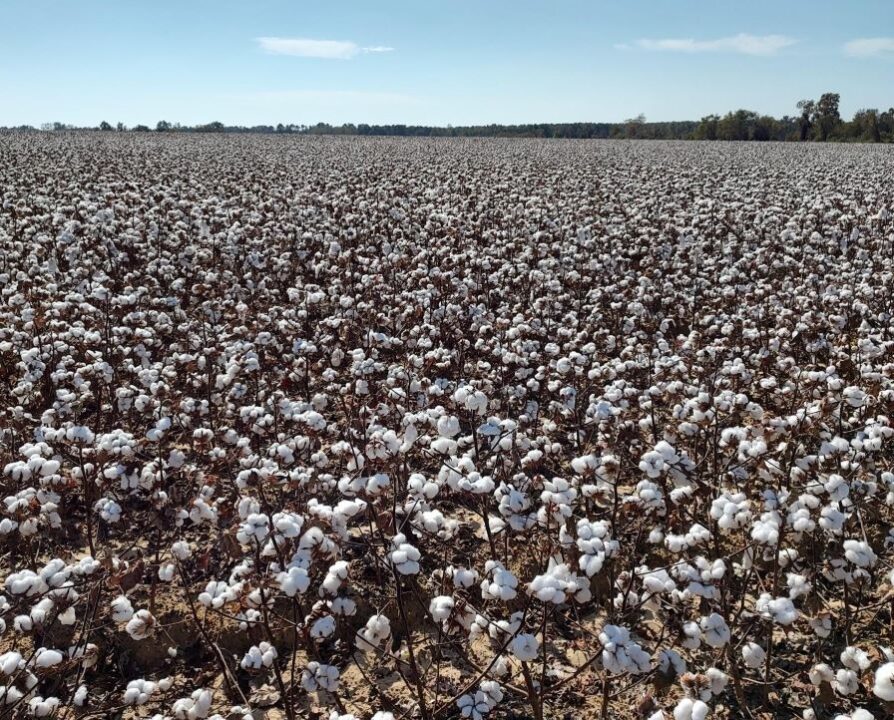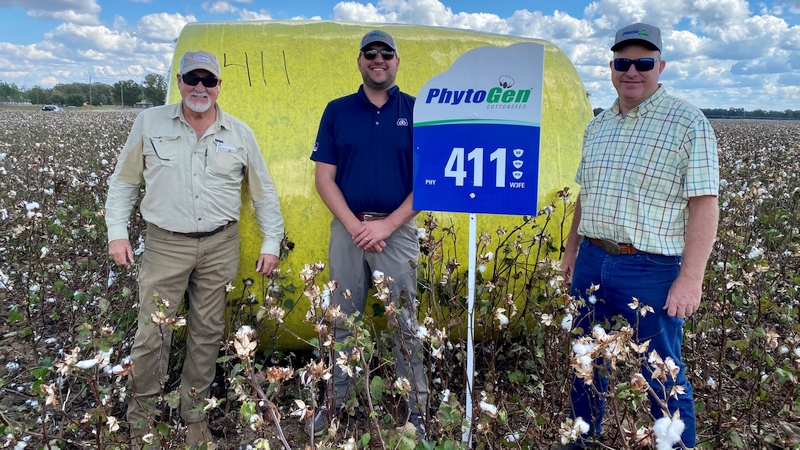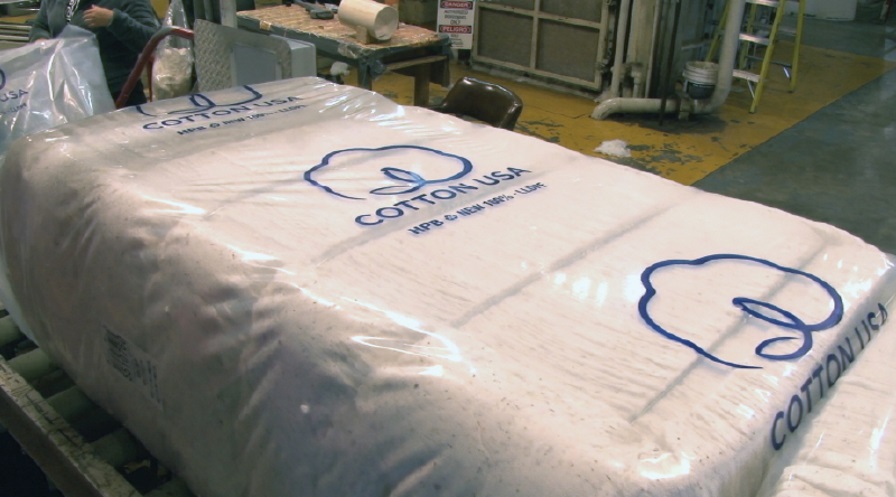From Fiber To Shirt China’s Esquel Is All Cotton
Vertical integration is not a new concept in the global cotton industry. Many textile companies spin yarn and send it to their own fabric-making facilities. Other textile companies might incorporate cut-and-sew factories into their spinning and fabric mill operations, taking the integration one more step down the supply chain. At the other end of the spectrum, some cotton merchants dabble with vertical integration, investing in ginning facilities and providing capital to farmers in production zones throughout the world.
But few cotton companies have the vertical integration of the Esquel Group, the Hong Kong-based multi-national textile company that specializes in high-quality cotton shirts. Esquel begins in the fields of China’s Xinjiang province, growing 20% of the extra-long staple cotton used in its premium brand cotton tops. Except for a small amount of Supima imported from the United States, the remaining 80% of Esquel’s cotton is purchased from local farmers in Xinjiang. Whether grown on its farms or bought from local farmers, Esquel gins 95% of the ELS cotton that goes into their shirts before sending it to their spinning mills. From there it goes to Esquel fabric mills, cut-and-sew facilities, and then to its distribution centers – a supply chain that handled more than 66 million cotton shirts last year for brands such as Polo Ralph Lauren, Tommy Hilfiger, Abercrombie and Fitch, Brooks Brothers, Nike and Nordstrom.
Dr. John Cheh, COO and vice chairman at Esquel, says the corporation’s vertical integration and commitment to 100% cotton make it a unique textile company, not only in China’s massive industry but throughout the world.
“Our approach is different from other shirt players in that we are truly vertically integrated, meaning we start from cotton production and cotton ginning. We concentrate primarily on extra-long staple (ELS) cotton, from cotton farming and ginning to spinning, to both weaving and knitting, to garment making,” Cheh said. “And we are also in accessories, buttons, labels, polybags and packaging material. So it is a truly vertical operation that specializes in cotton – we don’t do polyester. It is all cotton.”
Last year, Esquel used approximately 10,000 metric tons of Pima grade cotton, about 10% of China’s ELS production. That commitment to high quality cotton is where the Esquel story begins, but the attention to detail and quality down the supply chain is where the company excels.
“The value proposition that this gives to our worldwide customers is really quality assurance, because we control the quality from cotton and yarn through product development. We are not just a garment maker. A lot of other players only set up garment factories, so the fabric comes from other mills. The yarn that goes into the fabric comes from another set of players, and the cotton that goes into that yarn comes from somewhere else,” Cheh said. “But we control the quality from cotton to yarn to fabric to garment, and we therefore can offer a lot more interesting products, certainly in terms of product development. We can mix different yarn; in the fabric mill we can try different hand feel and different finishing; and then in the garment-making process different washings and treatments to come up with a whole slew of products for the customers.”
The majority of Esquel’s operations are in China, including its ELS production, ginning and spinning in the Xinjiang province. Esquel’s manufacturing hub is in southern China, north of Hong Kong in the Guangdong province, and includes its fabric mills, a heather yarn spinning mill, two garment manufacturing factories, an accessories factory and its own power plant. Other facilities include two garment-making factories near Shanghai, as well as facilities in Malaysia, Vietnam, Mauritius and Sri Lanka. Esquel added a new, state-of-the-art fabric mill last year, boosting its woven fabric production to 7.5 million yards each month. These locations all fit into Esquel’s vertical integration and work to deliver quality products to its big-name clients.
Why Cotton?
For a textile company with a progressive vertical structure, some may wonder why Esquel chooses to work with an old world fiber like cotton. When the company began 30 years ago, Esquel wasn’t in the cotton business – it was buying fabric from Japan and just making shirts. As the business grew, company management saw a need to concentrate and focus on quality, high-end shirts.
“We wanted to specialize, and we liked the benefits of a natural fiber. We feel that cotton makes the best shirts in terms of breathability, comfort and wear. And we felt that to be very good at making quality shirts, we needed to concentrate our efforts, so that we could develop and apply those skills,” Cheh said. “So we continued to incorporate fabric making, yarn spinning, ginning and farming into our business to ensure quality. It is a good way to give us more understanding in terms of quality and performance. Now we actually do cotton R&D, and we are going to have some new cotton seed varieties patented under our founder’s name.”
In addition to variety R&D, Esquel develops technologies for the cotton textile industry as well. Wrinkle-resistant and pucker-free treatments are integrated into their woven shirts, while the company develops applications for knits such as shrinkage control, color standards and performance care. Nanotechnology and stain-repellent fabrics are also growing in popularity.
“Within the confines of 100% cotton, we offer most of these functionalities. We also offer special washes, stonewashes for things such as the A&F soft, faded look – that is all achieved through a lot of product development that we focus on at Esquel,” Cheh said.
The choice of cotton is also consumer driven. Cotton is what consumers want in the luxury shirt segment as well as the custom shirt market, a market that Esquel enters through partners such as Nordstrom department stores. Even with its size and global scope, Esquel services these small runs for the custom and made-to-measure shirt customers.
“We can turn around a custom-made shirt for a Nordstrom customer that walks in and picks a fabric, collar and cuff and have the shirt delivered in a gift box in four weeks. That is a real value from factories of our size, scale and business. That is another service we offer to our customers – it’s our value proposition.”
One World, One Vision
While quality ELS shirts may be Esquel’s niche, it isn’t the only value offered by the company. Esquel takes a progressive view of corporate social responsibility, offering its clients a value proposition in addition to its superior quality shirts. From sustainable, conventional cotton production using drip irrigation to organic cotton, Esquel’s message of social responsibility starts in the fields of Xinjiang. Esquel is on the board of Organic Exchange, and it emphasizes the importance of sustainable development. The corporate message is continued in its factories, where the company uses waste water treatment and chemical R&D to mitigate its operating impact on the environment.
“We are in this because of our corporate philosophy, our corporate values and our corporate culture. This is one of our key differentiators – we are strong supporters of sustainable development and corporate social responsibility,” Cheh said. “We have the Esquel 5 E’s – ethics, environment, exploration, excellence and education. These are our corporate values; this is the way that we carry out our business, and the way we treat our staff and workers. It is the way we relate to customers and the communities where we operate.
“We are ethical, caring for the environment, and always searching for newer and better things we can offer our staff and our customers. We do joint research with many universities and suppliers to conserve energy, reduce waste and preserve the environment. We also provide educational support for our staff and for the community. We help a lot of the poor communities in Xinjiang, where we have constructed schools and donated books to libraries. When you add this up, these are the core elements of corporate social responsibility.”
Esquel is able to maintain this focus because it is a family-owned company whose owners and management understand the importance of these values – to their employees, to the communities where they operate, and to their customers who are becoming more interested in these issues. As consumers become more conscious of the environment and working conditions around the world, they look for high quality garments produced in ethical and environmentally friendly conditions. But with the intense competition of the textile market, how can Esquel spend more money and time on these values? The answer is simple, and it sums up a trend likely to take hold in the global textile industry.
“We are investing in all of these expensive technologies – waste water treatment, processes to save water in cotton production, processes to use less chemical dye stuff – and people ask, ‘How can you afford it?’ We do it because it is what we believe in, and it is the best value proposition to our customers. So it is a virtuous circle,” Cheh said. “We think it is good for business and investment is necessary, so it is also justified. If you don’t do it, then you aren’t going to be able to stay in business.”









